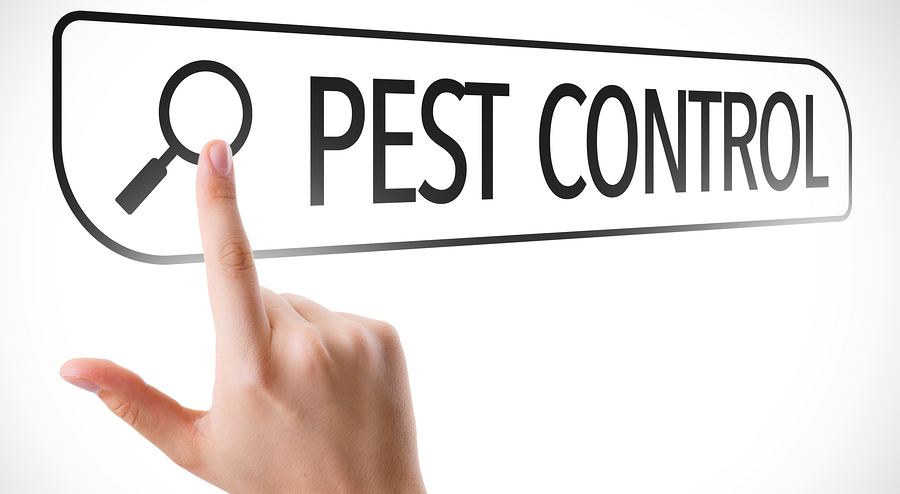As someone who loves gardening, one of the most fulfilling experiences is observing the plants you care for thrive and flourish. However, the peaceful allure of a meticulously cared-for garden can easily be disturbed by the presence of nuisance insects. Whether it's those pesky aphids nibbling on the blooms you cherish or caterpillars munching on the produce in your garden, being equipped to handle these unwanted visitors is crucial for ensuring a flourishing garden. In this resource, we'll discuss ways to control pests that protect your plants while ensuring your garden environmentally friendly.
Understanding the typical pests that target gardens and their behavior is the initial step in preventing infestations. Many gardeners opt for nature-friendly pest control solutions that are harmless for both your plants and helpful insects. By adopting the appropriate techniques, you can appreciate the beauty of your garden without the fear of pests taking over. In the next chapters, we will investigate multiple strategies to ensure your plants are healthy and thriving, ensuring your garden remains a source of joy year after year.
Important Pest Prevention Strategies for Gardeners
To maintain a vibrant garden, it is essential to utilize efficient pest control strategies that safeguard your flora while lessening harm to the ecosystem. Start by attracting beneficial insects such as ladybirds and lacewings, which inherently combat frequent pests. Sowing flowers like marigolds and tropaeolum can lure these helpers and provide a natural balance. Additionally, think about incorporating companion planting, where specific plants are planted closely together to discourage certain pests.
Frequent checking of your crops is vital for early detection of pest concerns. Inspect your garden often for signs of pest presence, such as damaged leaves or faded foliage. Swift action can avert a small problem from escalating into a larger one. If you spot pests, use a mild soap solution or neem oil as a natural treatment alternative. These solutions are potent yet non-toxic for most beneficial insects when administered properly.
Proactive measures are crucial to keeping pests at bay. Changing crops each season can break pest generations and reduce the risk of pest issues. Additionally, upholding Bed Bug control Queen Creek through soil enrichment and mulching fortifies plants, making them less prone to pest invasions. Confirm that you are moistening correctly and only as needed, as excess watering can draw pests like slugs and snails. By following these crucial tips, you can cultivate a thriving and flourishing garden free of harmful pests.
Natural and Eco-Conscious Strategies
When it comes to pest control in your garden, many gardeners are looking for methods that are not only successful but also non-toxic for the environment. One of the most straightforward ways to deter pests is to encourage beneficial insects that prey on them. Ladybugs, green lacewings, and beneficial wasps are fantastic allies in the struggle against frequent garden pests. By planting a varied range of plants and herbs, you can draw these useful insects and form a balanced ecosystem that minimizes pest issues.
Essential oils are an additional strong tool in natural pest control. Oils such as spearmint, lavendin, and tea tree oil are famous for their pest-repelling properties. Mixing a couple drops of these oils with water and a tiny amount of liquid soap can create an effective spray that helps repel unwanted garden visitors. Be certain to apply any spray on a small area of your plants first to ensure there are not any negative effects. Consistent applications during high pest season can significantly lower infestations.
Lastly, incorporating tangible barriers can provide an eco-friendly solution to pest problems. Row covers, nets, and even basic handpicking can protect your plants without the use of chemicals. These methods are particularly effective against greater pests like caterpillars and bugs. Routine maintenance, such as picking off debris and maintaining plants vigorous, also plays a crucial role in minimizing pest attraction in your garden. Together, these natural solutions can form a bustling garden that stays pest-free while being gentle on the planet.
Seasonal Pest Management Tactics
Spring is a critical time for pest prevention, as increased temperatures stir dormant insects. To defend your garden, begin by carrying out a comprehensive examination of your plants for early signs of pests like mealybugs or worms. You can utilize eco-friendly pest mitigation solutions such as tea tree oil or potassium soap to control outbreaks before they grow. Additionally, keeping proper plant spacing and ensuring adequate air flow can hinder pest growth. Frequently removing debris and dead plant material also contributes reduce possible breeding grounds for harmful insects.
As the summer season rolls in, the temperature brings a different set of problems. Flies and fire ants can become especially troublesome during this season. To keep these pests at bay, look into using pest deterrents and traps specifically made for them. You can also bring in helpful insects like ladybird beetles and green lacewings to your garden, as they hunt common pests. Verify that stagnant water is removed to reduce mosquito and keep up with consistent garden maintenance to discourage pest attacks.
When the autumn season arrives, pests commence seeking shelter from the cold, making it vital to pest-proof your garden and home. straight from the source and crevices around windows and doors to prevent entry. Within, store food in closed containers to deter rodents and pantry pests. Pay close attention to your garden, removing spent plants and debris that could attract overwintering insects. By applying these strategies throughout the year, you can maintain a thriving garden and protect it against unwanted pests year-round.

